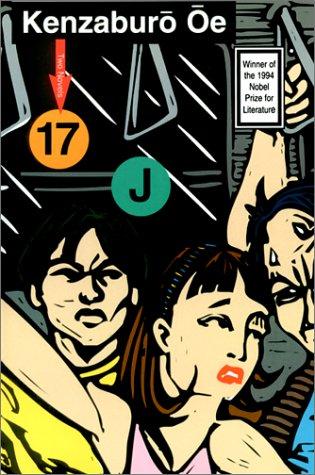Teru recenzis Two novels de Kenzaburō Ōe
Two looks at how extreme behavior may come about
4 steloj
The two novellas included in this volume both take a look at the darker sides of Japanese society, those more prone to extreme thoughts and acts. Oe uses the natural impulses of sexuality and desire not as a justification for the extreme but as a starting point to show how very human self-doubt can be warped by circumstance and repression into something that many would find difficult to categorize as legitimate expression.
Seventeen, in particular, stands out as poignant in its depiction of the radicalization of a young man into the world of ultranationalist and chauvinistic politics. There is no doubt as to its real-life inspiration and connection to the bloody terrorism in Japan at the time. Oe does not dehumanize or fall into easy maudlin traps in his prose and presents a compelling portrait of a typical youth and his preoccupations. This isn’t to say that things don’t …
The two novellas included in this volume both take a look at the darker sides of Japanese society, those more prone to extreme thoughts and acts. Oe uses the natural impulses of sexuality and desire not as a justification for the extreme but as a starting point to show how very human self-doubt can be warped by circumstance and repression into something that many would find difficult to categorize as legitimate expression.
Seventeen, in particular, stands out as poignant in its depiction of the radicalization of a young man into the world of ultranationalist and chauvinistic politics. There is no doubt as to its real-life inspiration and connection to the bloody terrorism in Japan at the time. Oe does not dehumanize or fall into easy maudlin traps in his prose and presents a compelling portrait of a typical youth and his preoccupations. This isn’t to say that things don’t almost become a little too over-the-top but I feel that that is part of the point of the novella—the wild emotion and intellect of the protagonist is helped into focus by the explosion of energy and drive. The youth’s search for meaning and certainty in life quickly leads to both violence within and without, as self-perceived weaknesses are repressed and expressed instead by unwavering belief in something immutable and larger than oneself. It is impossible not to notice the overlap between the manner of thinking that is depicted in the novella and extremist movements at present. Oe’s prose feels fluid and makes the subject matter easy to read and digest.
It is a pity, then, that Seventeen has only been republished outside of Japan and its sequel has never been translated given the still-extant pressure from extremists within Japan; death threats against publishers and literary agents have effectively censored Oe. Perhaps ironically given the fulminating protestation, Seventeen does show that there is a common humanity within us all. It does not offer countermeasures or solutions as such and I think it makes a good case that there is no surefire way to inoculate the individual from falling into these hateful traps. Any approach to dealing with extremism may very necessitate a rethink on social roles and the expectations put upon individuals.
The second novella in the collection, J, also comments on social roles and expectations, using decadence and debauchery as a vehicle for exploring the reasons for ennui and detachment from others and society. The titular J is rich and free to do as he likes but still finds no solace in his freedom. Sexuality is once more used as a vehicle to showcase dissatisfaction but it is not the explanation for the deeper issues at hand. J finds himself adrift and untethered from society at large, without much meaning or satisfaction and the plot itself would almost seem farcical if not for Oe’s deft handling of the humanity of his subjects.
There is plenty of reason to feel scorn or contempt for the characters involved but the non-judgmental nature of the narrative is effective at highlighting the larger issues at play. Those in J’s orbit may not resort to the same extremes as him but their actions and thoughts are nonetheless isolating if not harmful. It is a strong point of the novella that all are believable in their own way, despite the absurdity of some of the more extreme occurrences.
While I think that there’s a lot that’s specific to the first couple of decades of post-war Japan, neither novella feels dated and, in many ways, Oe’s works feel honest in its depictions. Despite the subject matter, it feels less performative in terms of depicting life and people in Japan; there is none of the perspective-skewing nostalgia for a Japan that never did quite exist that color the works of other contemporaneous writers.
These works aren’t for everyone, mind. While the prose isn’t difficult I think that it might be easy to lose track of certain things as there is no real tendency to pause or bring attention to itself. J, in particular, can feel as free-flowing as its protagonist and it is only once it is over that it is easier to appreciate the form of things.

